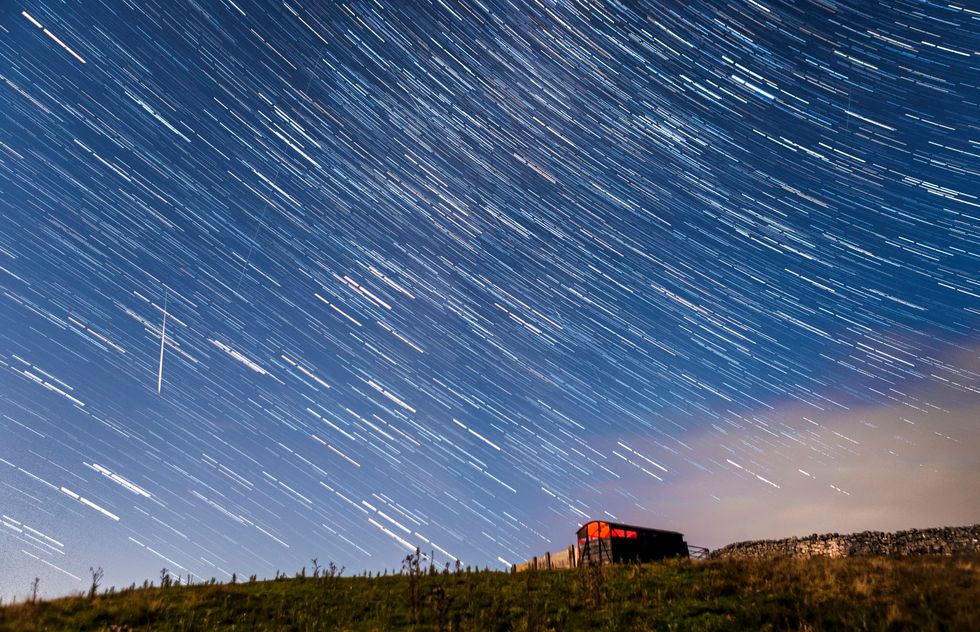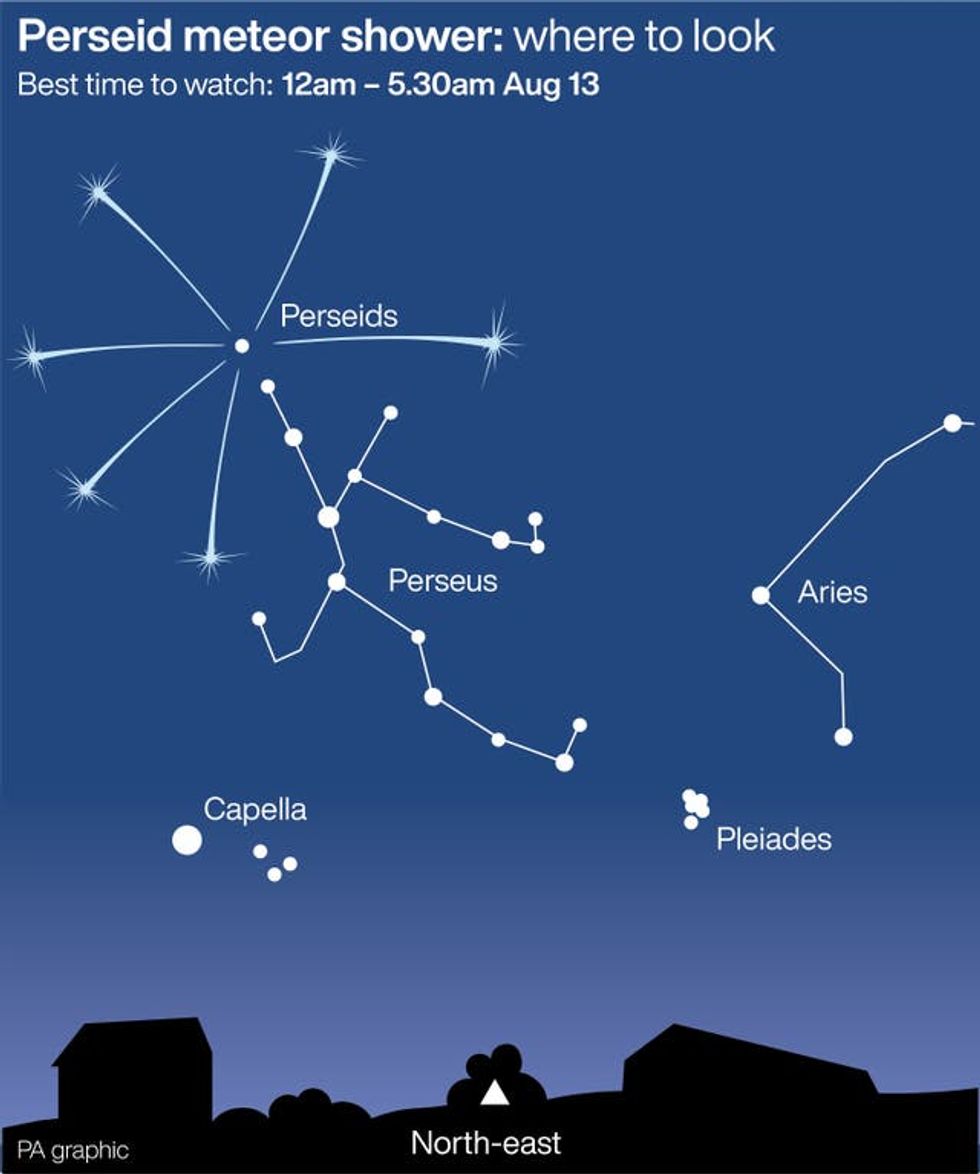
Shooting stars will light up the sky as the Perseid meteor shower puts on a celestial display on Monday night.
The display could produce up to 100 meteors an hour, as the Earth passes through a cloud of cometary dust.
The shower should be visible across the UK from around sunset on Monday until the early hours of Tuesday, but the best time will be from midnight.

The event is associated with the dusty debris left by Comet Swift-Tuttle, which orbits the sun once every 133 years.
The meteoroids from the comet, mostly no bigger than a grain of sand, burn up as they hit the Earth’s atmosphere at 36 miles per second, to produce a shooting stream of light in the sky.
Jess Lee, astronomy education officer at the Royal Observatory Greenwich, said: “This shower is known for a particularly high rate of meteors (up to 100 per hour if we’re lucky) and particularly bright meteors.
“This year, due to the current phase of the Moon, the sky should be dark enough for many of the shooting stars to be visible.”
If you do want to spot some meteors, try to go out after midnight, as far from any streetlights as you can, to an area with lots of the sky visible if possible. It’s then just a case of getting comfortable, looking up, and waiting
Jess Lee, Royal Observatory Greenwich
She added that the best view of the shower would be in areas that had clear skies and that were away from light pollution.
Ms Lee said: “If you do want to spot some meteors, try to go out after midnight, as far from any streetlights as you can, to an area with lots of the sky visible if possible.
“It’s then just a case of getting comfortable, looking up, and waiting.”
The Perseids are named after the constellation of Perseus, because if you trace the meteors back across the sky they appear to have come from that area.













